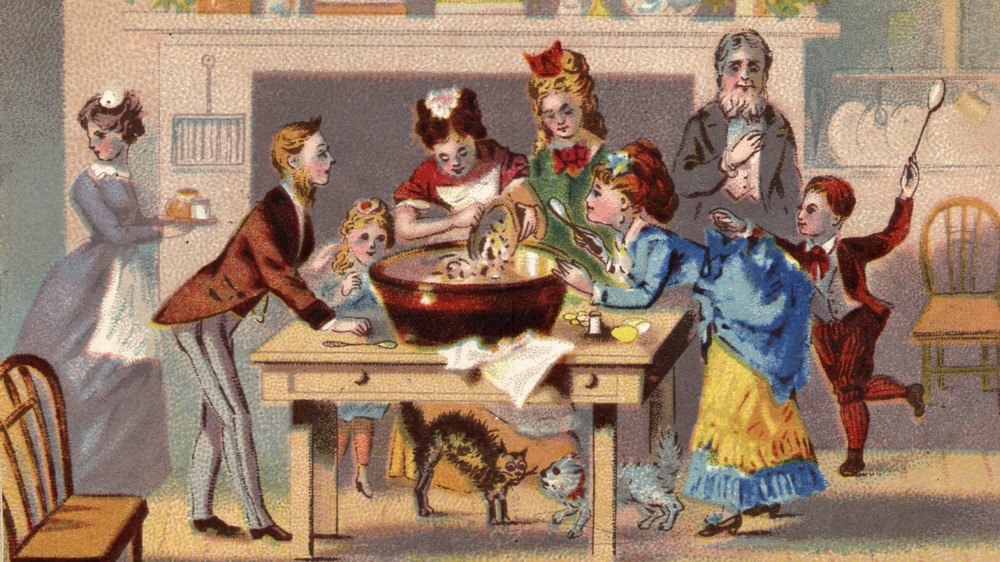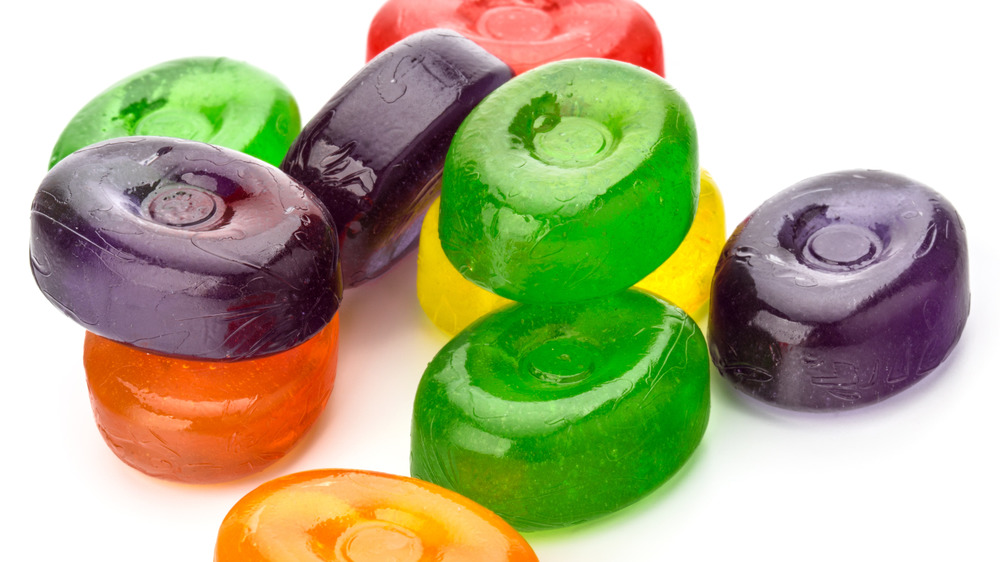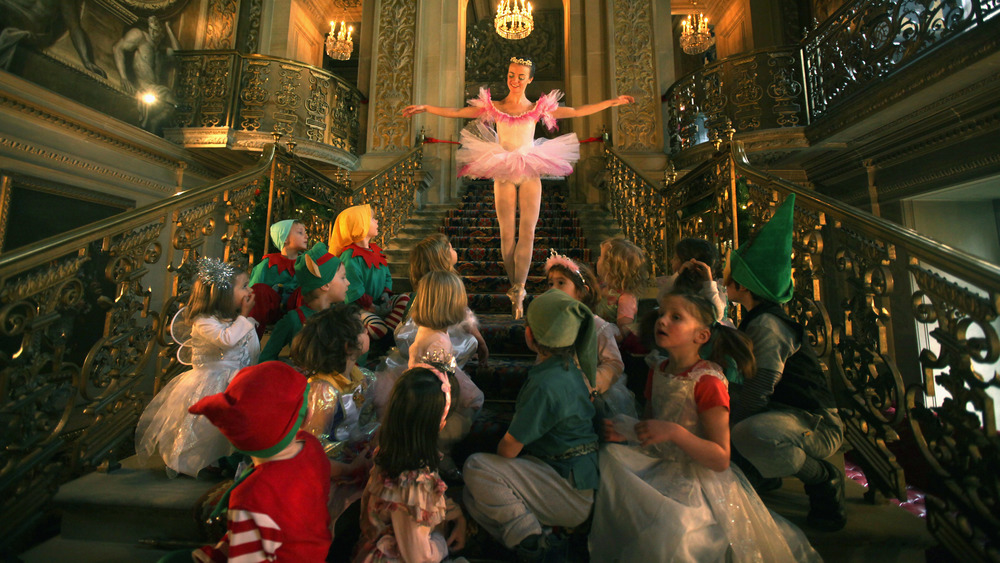What You Didn't Know About Sugarplums
It's funny how so much of what we know, or to think we know, about Christmas comes from a time so long ago that it's now practically ancient history. Much of the Santa mythology – the sleigh, the flying reindeer, the unlikely premise that a "right jolly [read: chubby] old elf" could somehow fit down, and then back up, the chimney – was popularized by the 1823 poem 'The Night Before Christmas," a.k.a. "Account of a Visit From St. Nicholas." That poem also gave birth to a question that's been puzzling anyone born after the 19th century: just what, exactly are sugarplums and how do we envision them, dancing or otherwise?
While Tchaikovsky supplied the soundtrack some 170 years later (via Britannica) so we now know what music a Sugar Plum Fairy dances to (darn antique earworm! Now we'll all be humming it all day), we still don't have a clue what her eponymous candy actually tastes like. A sugar plum sounds like, in its simplest state, it would just be a plum dipped in sugar, right? But plums are out of season in December, so a Christmas sugar plum would have to be dried...in other words, a very prosaic prune. Further research, however, indicates that sugarplums may actually not have had too much to do with plums at all.
Sugar plums needn't have contained fruit
While Dunkin' Donuts was so bold as to reenvision the sugarplum in macchiato form, combining coffee with vanilla, raspberry, blueberry, and, yes, plum, sugarplums of yesteryear did not necessarily contain fruit. Time tells of a 1609 recipe where plums are preserved by boiling in sugared water but says that the word "sugarplum" was not used to refer solely to sweetened stewed prunes. A sugarplum could be anything sweet and round, including (but not limited to) the mixture of dried fruit and nuts that food writer Mimi Sheraton tried to reproduce in a 1960s cookbook. This recipe has been making the rounds of food blogs since the internet began (The Spruce Eats, amongst numerous others) as something purported to be a truly "authentic" sugarplum.
Ixnay on that, say both Time and The Atlantic, with all the authority of a century-plus worth of print media behind them. The latter explains that early sugar plums may have been so named due to the fact that they resembled plums in shape rather than containing them, while National Geographic, another long-established publication, says that sugar plums may have originality been identical to comfits, these being sugar-coated seeds, nuts, or spices. They go on to say that, should Clement C. Moore have been referring to specific sweets in his poem, these would likely have been round or oval hard sugar candies colored with natural food dyes (not too many artificial ones available in 1822) and sold in paper cones.
Those sugarplums may well have been metaphorical
There is a chance, however, that Moore meant "sugar plums" in a more metaphorical sense, as the word by then was used to mean nice things in general. National Geographic relates that "a mouth full of sugar plums" was used in the 17th century to mean that you used sweet words but might be concealing some not-so-sweet thoughts behind them ("honey-tongued" is a phrase often used to convey the same idea), while by the next century "sugar plum" morphed into a verb that may have meant, well, kissing a**. By the time "Night Before Christmas" came out, though, the word "plum" was more likely to mean something desirable (as in, "a plum job"), and The Atlantic says the words "sugar plum" could have indicated anything sweet and lovely.
So were the kids in the poem just dreaming sweet dreams of Christmas magic in general? Or were they drooling in anticipatory greed for all the sugar they'd be allowed to gobble down on the day? Who knows, and does it really matter anyway? After all who are we to judge our great-great-great-great-we-really-have-no-idea-how-many-greats-to-add-for-200-years grandparents? The important thing to realize is, whatever a sugarplum may be, it is not, and probably never was, a sugar-dipped prune. That's a relief, knowing we'll at least be spared the type of vision that inspires nothing more than a middle-of-the-night trip to the bathroom.


